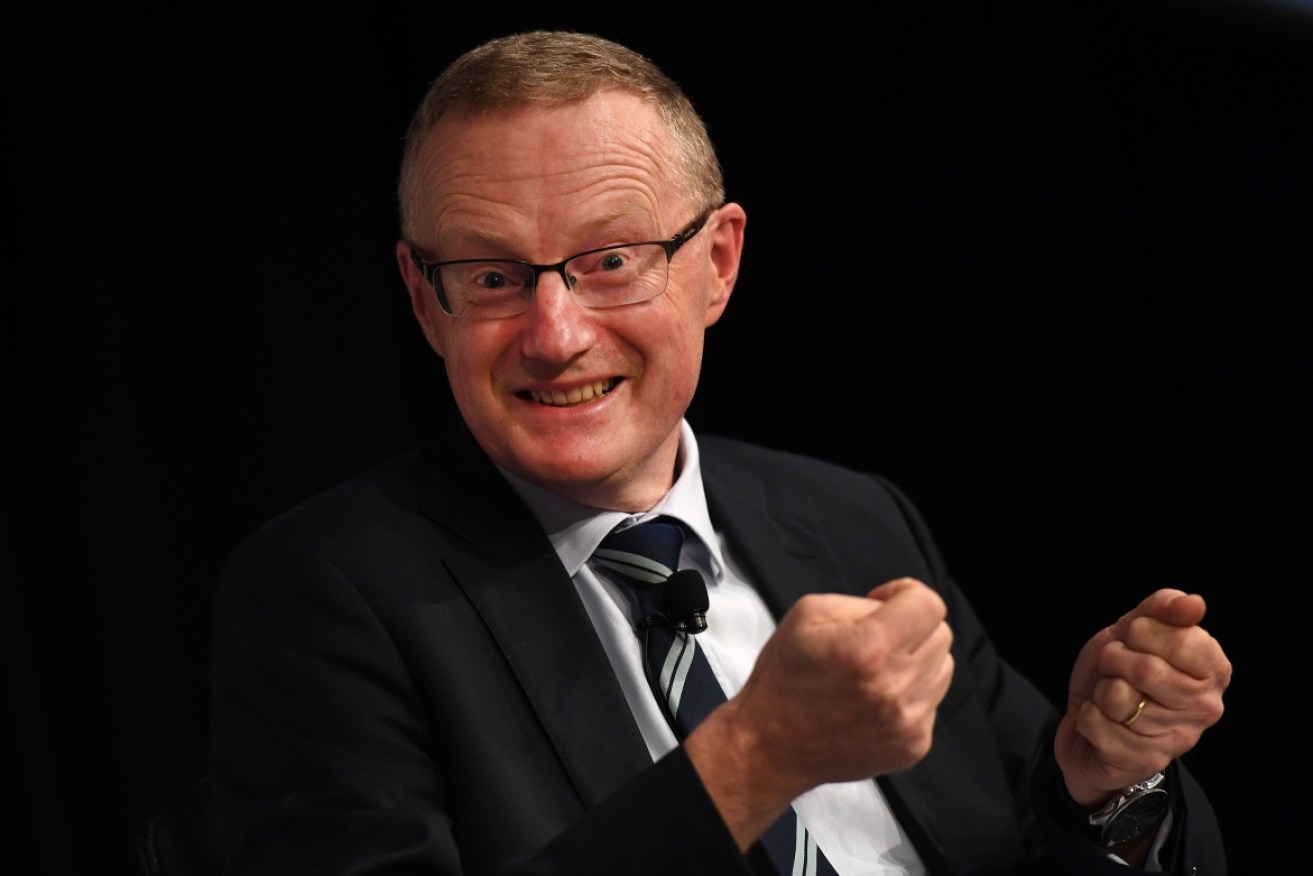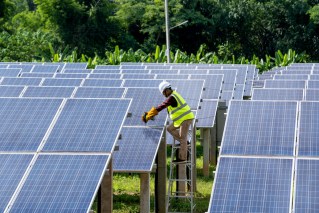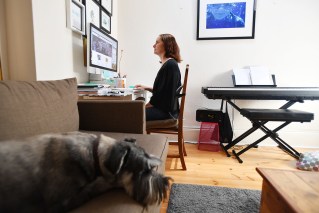House prices are falling and wages may soon be rising: RBA


RBA governor Philip Lowe says pay rises are on the horizon. Photo: AAP
The era of historically lacklustre wage growth in Australia appears to have bottomed out, meaning Aussie workers may soon be looking at a pay rise above inflation.
And with property prices in Sydney and Melbourne continuing to fall, and no rise in interest rates on the near horizon, that could mean life is about to get slowly more affordable for many Australians.
That was the small ray of light in what was an otherwise underwhelming monetary policy statement from Reserve Bank of Australia governor Philip Lowe on Tuesday.
Dr Lowe announced there would be no change to the cash rate from its current 1.5 per cent. The decision makes it a record 18 meetings in a row that the RBA made no change to the cash rate – coinciding exactly with Mr Lowe’s tenure as governor.
While the employment market was strong and would continue to grow, wage growth remained a problem, Dr Lowe said.
“Notwithstanding the improving labour market, wages growth remains low. This is likely to continue for a while yet, although the stronger economy should see some lift in wages growth over time,” he said.
“Consistent with this, the rate of wages growth appears to have troughed and there are reports that some employers are finding it more difficult to hire workers with the necessary skills.”
Dr Lowe did not elaborate, but the implication was that if employers are finding it harder to find appropriate workers, they will have to offer to pay more if they want to attract the employees with the necessary skills.
In other words, the supply and demand dynamic is tipping in favour of workers, which will eventually push up wages – at least in certain jobs and certain industries.
Callam Pickering, APAC economist for global job site Indeed, told The New Daily wage growth, which is currently 2 per cent per annum in the private sector, would pick up slowly over the coming year.
“I anticipate it will get to 2.25 per cent by the end of the year. Or if the economy performs better than expected, it could get to 2.5 per cent. But the key is it will be very gradual.”
That would put wage growth just above inflation, which currently sits at 2 per cent – though the RBA predicted that too would pick up to “a bit above 2 per cent”.
Mr Pickering said anecdotal evidence suggested industries such as construction, healthcare and tech were finding skill shortages, which was giving workers in those industries more bargaining power. As employment rates rise, he said this bargaining power would extend to other industries.
House prices are down
For the second month in a row, the RBA formally acknowledged that property prices were falling in Sydney and Melbourne.
This was corroborated by research from CoreLogic, also out on Tuesday, which found property prices in March fell by 0.3 per cent in Sydney and 0.2 per cent in Melbourne.
Property prices also fell in Adelaide (-0.3 per cent), and picked up slightly in Brisbane (0.1 per cent), Canberra (0.2 per cent) and Perth (0.3 per cent).
Darwin and Hobart saw more considerable growth, of 1 per cent and 1.7 per cent respectively.
Averaged out across Australia, property values saw no growth and no losses.

However, in towns and cities neighbouring big cities, such as Geelong in Victoria and Newcastle in New South Wales, property prices performed much better.
Overall, the losses were less severe than in February, particularly in Sydney, which saw 0.5 per cent come off the value of its median dwelling, compared to just 0.3 per cent in March.
CoreLogic’s head of research Tim Lawless said this showed the housing market may be “close to finding a floor” – that is, that the feared property bubble would not be bursting dramatically.
However, Mr Lawless predicted the days of extreme growth fuelling intense speculation would not return.
“Despite the potential improvement in credit availability for investors, rental yields remain low and credit policy is likely to be firmly under the spotlight following the banking royal commission,” he said.
“Considering these factors, even if the housing market is close to finding a floor, the prospects for a rebound in capital gains, as seen through late 2016 and early 2017, are far less likely.”








